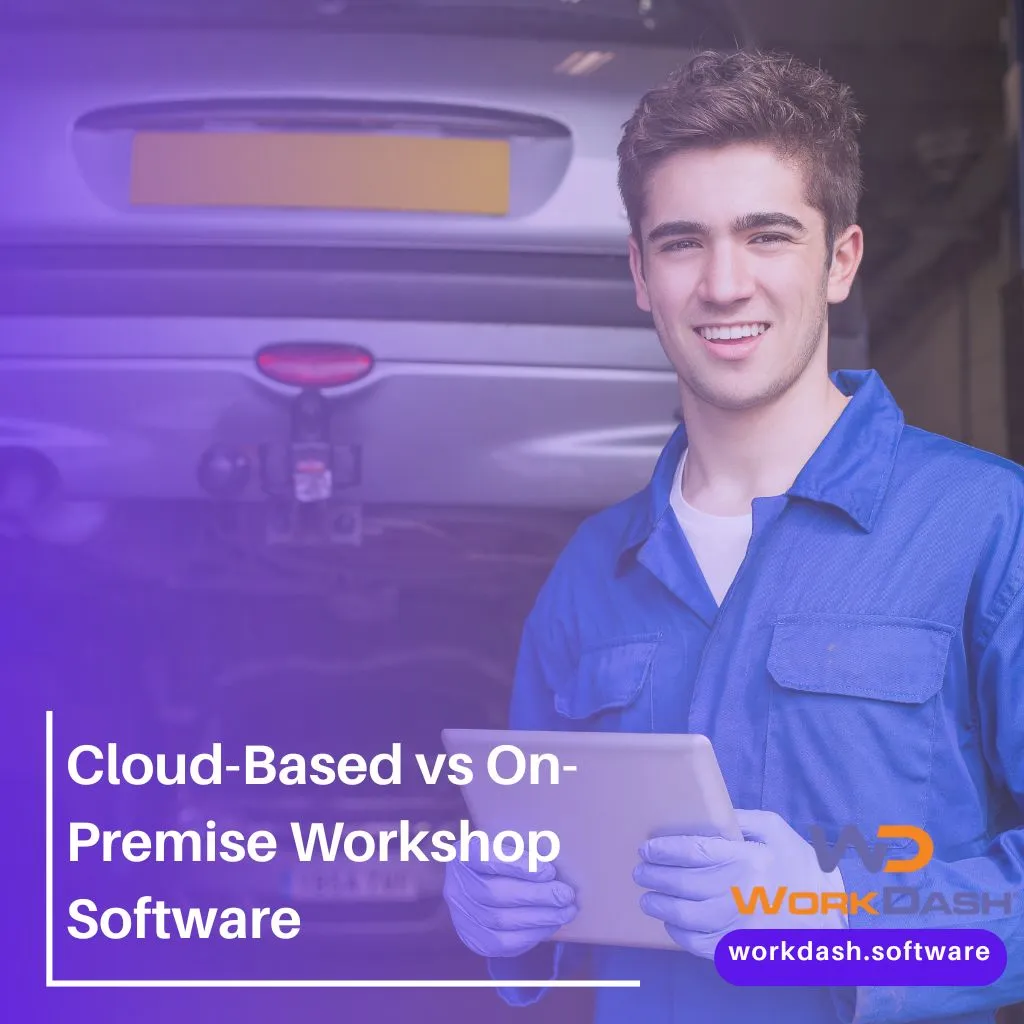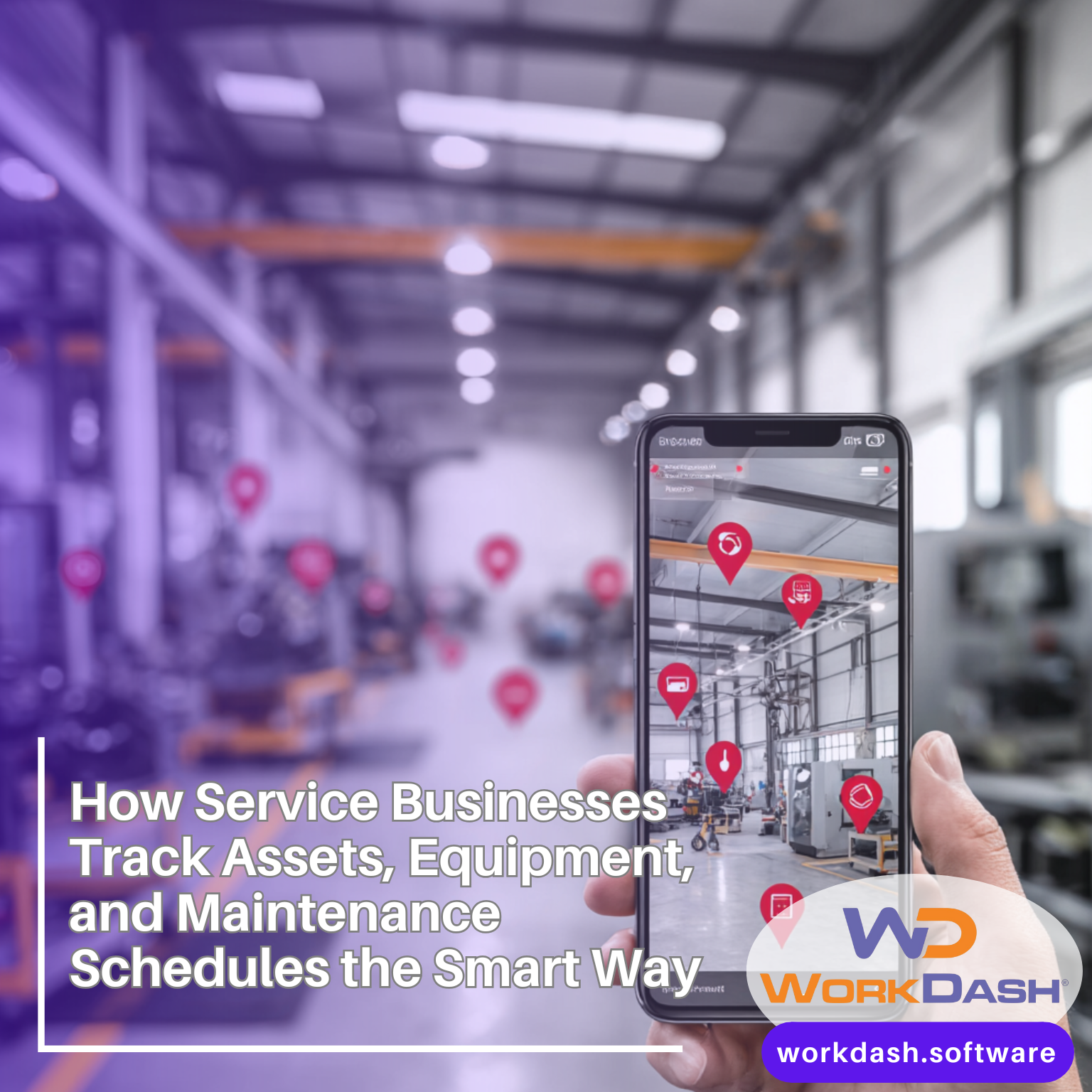Table of Contents
In the evolving world of cloud computing and digital tools, choosing between cloud-based and on-premise software is a major decision for mechanical workshops. With operations becoming more complex and customer expectations growing, investing in the right software solution is critical for streamlining jobs, managing teams, and boosting workshop efficiency.
Cloud-Based Workshop Software: Modern Mobility with Greater Flexibility
What Is Cloud-Based Workshop Software?
Cloud-based workshop software refers to applications hosted off-site by a cloud service provider, accessed via an internet connection, and typically delivered through a SaaS (Software as a Service) model. You don’t need to install or maintain it on an internal server—you simply access the software through a browser or app.
This web-based deployment model offers a cost-effective way for mechanics to streamline operations without having to purchase new hardware or hire in-house IT experts.
Advantages and Disadvantages of Cloud-Based Software
Advantages
-
Lower upfront investment: Avoids the capital outlay of purchasing and maintaining servers.
-
Subscription pricing: Helps with cash flow through predictable monthly or annual fees.
-
Automatic updates: Always access the latest version of the software without manual upgrades.
-
Real-time collaboration: Multiple users can access live data across multiple devices or locations.
-
Remote access: Ideal for mobile mechanics or multi-site workshops.
-
Data backups and uptime: Backups are managed by the provider, reducing the risk of data loss.
Disadvantages
-
Less control over data storage and customisation.
-
Dependent on a stable internet connection.
-
Cloud service outage could temporarily limit access.
On-Premise Workshop Software: Complete Control and Custom Infrastructure
What Is On-Premise Workshop Software?
An on-premise solution is software that is installed locally on a workshop’s own servers or computers. You purchase a licence outright and are responsible for maintenance, data backups, and upgrades.
This on-site deployment offers complete control but comes with upfront costs and ongoing maintenance responsibilities.
Advantages and Disadvantages of On-Premise Software
Advantages
-
Complete control over data and system configuration.
-
Enhanced security for sensitive information in high-compliance industries.
-
More customisation options for unique workflows.
-
No ongoing subscription costs once installed.
Disadvantages
-
High capital investment: Requires purchase of both hardware and software licences.
-
Manual updates and system downtime during maintenance.
- Requires ongoing cyber security management and updates.
-
Requires internal or third-party IT support.
-
Limited scalability without additional purchases.
Key Differences Between On-Premise and Cloud-Based Workshop Software
| Feature | Cloud-Based Software | On-Premise Software |
|---|---|---|
| Deployment | Web-based, managed by provider | Installed on local hardware |
| Upfront Costs | Low | High |
| Scalability | Easily scale by adding users or features | Requires purchasing new hardware and licences |
| Data Control | Managed by service provider | In-house with full control |
| Customisation | Depends on software | Extensive |
| Accessibility | Accessible from any device | Limited to on-premise network |
| Maintenance | Included with subscription | Must maintain and update in-house |
| Integration | High with third-party tools | Often requires custom development |
| Backup & Security | Managed by cloud provider | Handled internally by IT staff |
On-Premise vs Cloud-Based: Which Is the Right Choice for Your Business?
When comparing cloud vs on-premise, it’s important to remember that your choice depends on several factors:
Budget and Cash Flow
-
Cloud-based solutions are ideal if you need a cost-effective, predictable monthly fee.
-
On-premise software requires a larger upfront outlay but may cost less long-term if maintained well.
Scalability and Growth
-
Need to grow quickly or seasonally adjust your operations? Cloud computing offers greater flexibility and scaling without needing new hardware.
Security and Compliance Needs
-
Workshops that handle sensitive data and prefer full control may lean towards on-premise systems.
-
However, cloud providers often implement robust encryption, multi-factor authentication, and other data protection measures.
IT Support and Resources
-
If you don’t have an internal IT team, the on-premise solution may be harder to maintain.
-
Cloud-based systems offer support and upgrades as part of your plan.
Accessibility and Mobility
-
If your staff need to access the software from different locations or on mobile devices, cloud-based systems offer superior flexibility.
Conclusion: Cloud-Based vs On-Premise – Making the Right Choice
The differences between on-premise and cloud-based workshop software come down to control, cost, flexibility, and technical capabilities. For most mechanical workshops—especially small to medium-sized businesses—cloud-based solutions offer the best balance of value, efficiency, and ease of use.
That said, on-premises software still plays a valuable role for businesses that prioritise customisation, have specific data compliance requirements, or already have robust internal IT infrastructure.
Before making a decision, assess your deployment needs, budget, security posture, and team workflows. The right choice isn’t always obvious, but getting it right will help future-proof your workshop and support smarter, more scalable operations.
👉Click here to get started for free!





